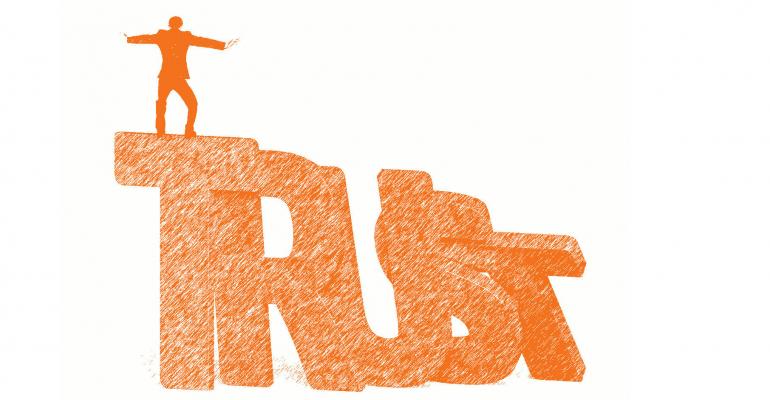Here are two surprising things about high-trust organizations:
1. Employees are paid more, by an average of $6,450 dollars a year.
2. Employees are 29 percent happier with their lives outside of work.
These findings were published in a Harvard Business Review article on “The Neuroscience of Trust” by Paul J. Zak, director of the Center for Neuroeconomics Studies at Claremont Graduate University and a member of the neurology department at Loma Linda University Medical Center. In the same article, Zak suggests that, compared with people at low-trust companies, workers in high-trust companies had 50 percent higher productivity, 74 percent less stress, 76 percent more engagement, and 106 percent more energy. Zak is the founder of Ofactor, a business culture management platform designed to help build high-trust organizations by identifying and addressing areas of low trust.
Related: For more on why and how to build trust through the event experience, read The Trust Factor.
The O in Ofactor comes from oxytocin, a hormone that acts as a neurotransmitter in the brain. The hormone is known to regulate social interaction, and Dr. Zak’s research, which has included taking blood samples from subsistence farmers in Papua New Guinea, suggests its release signals that one person finds another trustworthy, and even that they are more likely to act in a trustworthy manner themselves. Using this chemical marker, he researched environments and behaviors that can produce a high-trust culture.
Holly H. Brower, PhD, associate professor and faculty advisor in the Business and Enterprise Management Program at Wake Forest University, also studies trust in organizations. She says, “By definition, trust involves some sort of risk-taking so you have to feel that you are vulnerable to the other party. In the context of a face-to-face meeting or networking opportunities at conferences, you want to be seen as trustworthy to lay the groundwork for an ongoing relationship.” Brower notes that her research indicates that there are typically three factors that indicate trustworthiness to other people: ability, benevolence, and integrity.
How to Signal Your Trustworthiness
For event attendees, it can be hard to signal these attributes, but there are ways to do it. Here are some of Brower’s suggestions:
• “Be both interesting and interested.” To prove your ability, it is OK to discuss your accomplishments but don’t show off because listeners will find it arrogant and inauthentic. If you bring up a challenge you have met, she suggests sharing the story in a way that other people will find useful if they have the same problem. Make sure you ask other people about challenges they have faced, and what they did to overcome them. This shows you are interested in them, and also that you are keen to learn.
• Cover the basics to show your benevolence and integrity. Get to appointments on time and prepared, and if you are late, don’t be that person who makes everyone start again; it is up to you to catch up on what you missed.
• Follow through on things you say you are going to do. If, for example, someone is interested in an expert you know, following up with contact information demonstrates benevolence (you cared) and integrity (you did what you said you would do).
Meeting planners can help their attendees by ensuring they can contact each other (usually through an app or attendance information) and providing networking opportunities in environments that encourage conversation, have few distractions, and are comfortable enough for people to relax. It is hard to be your authentic self when you feel uncomfortable.





